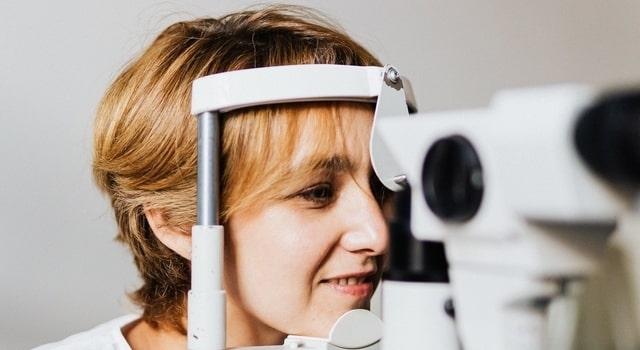
Regular eye exams are not just for maintaining visual clarity and eye health. Your eyes are a window into your whole-body health. Comprehensive eye exams can reveal early signs of systemic conditions, sometimes even before other noticeable symptoms arise.
Below, our eye care team at Carmel Mountain Vision Care discusses the connection between whole-body health and eye exams. They explore how regular annual exams can help detect and manage various systemic health issues.
Health Conditions an Optometrist Can Detect During an Eye Exam
During an eye exam, an optometrist can detect a range of health conditions, including:
Diabetes
Diabetes can cause changes in the retina's blood vessels, known as diabetic retinopathy. An optometrist can detect early signs of this condition, such as tiny hemorrhages or fluid leaks, during an eye exam. Early detection is crucial for preventing vision loss and managing diabetes effectively.
High Blood Pressure
High blood pressure, or hypertension, can cause damage to the blood vessels in the retina. During an eye exam, an eye doctor can identify this condition, known as hypertensive retinopathy. Symptoms include narrowing of the retinal arteries, bleeding, and swelling of the optic nerve. Early detection can prompt further investigation and management of hypertension, reducing the risk of serious cardiovascular events.
Autoimmune Diseases
Certain autoimmune diseases, such as lupus or rheumatoid arthritis, can affect the eyes. Inflammation, dry eyes, and uveitis (inflammation of the middle layer of the eye) are common symptoms. An eye exam can reveal these signs. This can lead to a more comprehensive assessment and management plan for the underlying autoimmune condition.
Thyroid Disease
Thyroid disease can cause changes in the eyes, such as bulging eyes (Graves' disease) or dry eyes. An eye exam can detect these changes, prompting further evaluation and treatment of thyroid conditions.
High Cholesterol
High cholesterol can cause yellowish cholesterol deposits in the retina's blood vessels, known as xanthelasma. Your eye doctor can detect these deposits during an eye exam. They can signal the need for a lipid profile test and lifestyle changes to manage cholesterol levels.
What to Do If Your Eye Exam Reveals Systemic Health Issues
Early detection of systemic health issues during an eye exam is critical in managing and treating these conditions. Here's what you can do if your eye exam reveals signs of systemic health issues:
Consult Your Primary Care Physician
If your eye exam indicates potential systemic health issues, the next step is to consult your primary care physician. They can order further tests, such as blood work or imaging studies, to confirm the diagnosis and determine the severity of the condition.
Follow Up with Specialists
Depending on the condition detected, you may need to follow up with specialists. For example, if your eye doctor detects diabetic retinopathy, you may need to see an endocrinologist for diabetes management and a retina specialist for ongoing eye care.
Adopt a Healthy Lifestyle
Managing systemic health issues often involves lifestyle changes. Eating a balanced diet, exercising regularly, and quitting smoking can significantly impact your health. It will help manage diabetes, high blood pressure, and high cholesterol.
Regular Monitoring
Once a systemic condition is detected, regular monitoring is essential. This includes regular follow-up visits with your healthcare providers and routine eye exams to track the progression of any eye-related changes.
The Importance of Comprehensive Eye Exams
Comprehensive eye exams are vital for maintaining vision and overall health. They allow for the early detection of systemic health issues, which can lead to timely intervention and better health outcomes. By prioritizing regular eye exams, you can ensure the health of your eyes and the well-being of your entire body.
Prioritize Your Health with Comprehensive Eye Exams
Your eyes can reveal much more than vision problems. Through comprehensive eye exams, optometrists can detect early signs of systemic health issues, enabling timely intervention and management. Regular eye exams are essential for maintaining overall health and should be an integral part of your healthcare routine. Speak to our San Diego eye care team to learn more.

